"EMPOWERING PARENTHOOD: DR. NANDITA PALSHETKAR'S TRAILBLAZING INNOVATIONS"
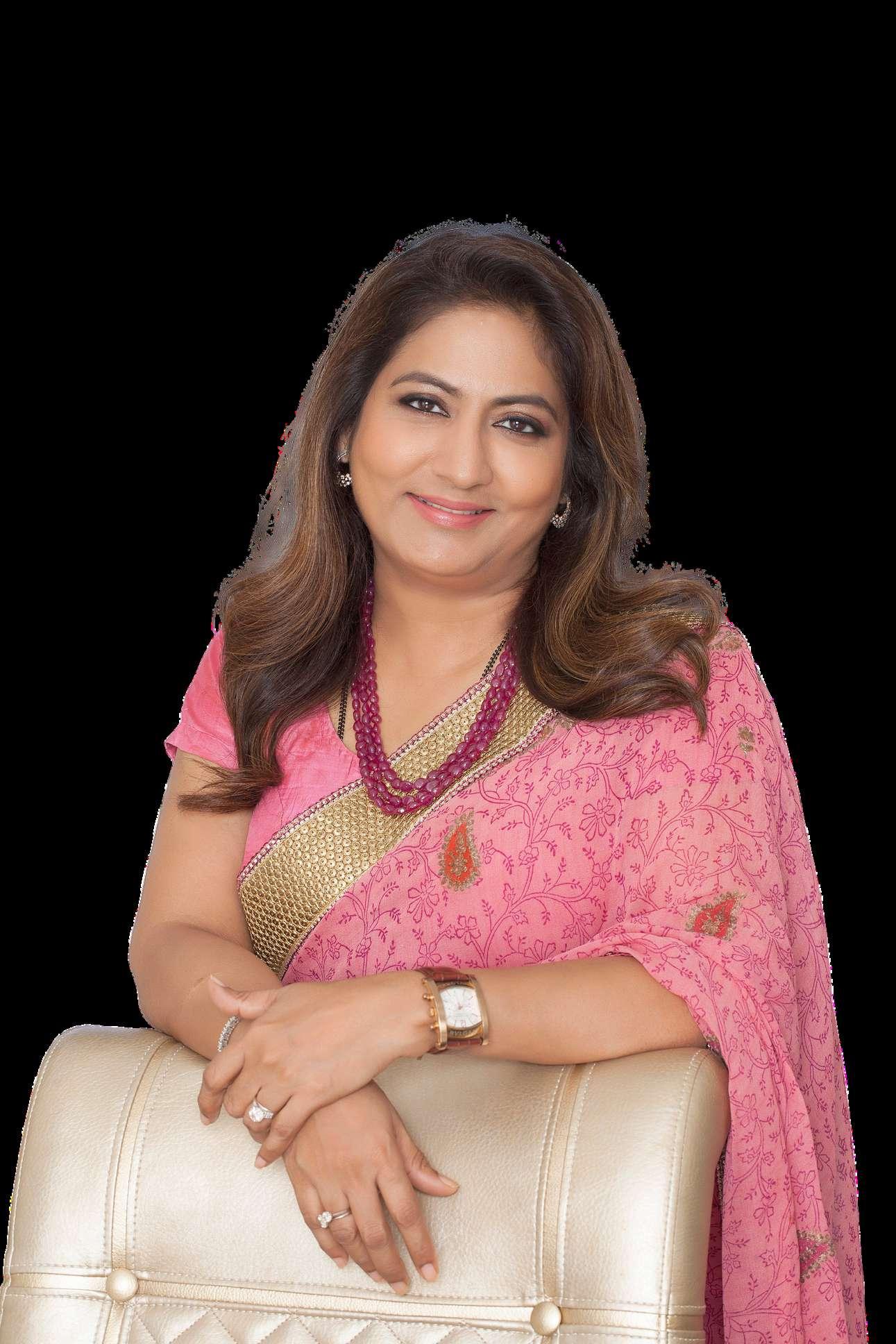
"INSPIRING CHANGE, BUILDING FAMILIES: A LEGACY OF COMPASSIONATE CARE"


"INSPIRING CHANGE, BUILDING FAMILIES: A LEGACY OF COMPASSIONATE CARE"
"Yourwindowto

Our mission is to empower and inspire our readers through thoughtprovoking, informative and engaging content. We strive to create a magazine that celebrates diversity, creativity, and innovation, while encouraging readers to explore new ideas and perspectives. Our goal is to provide a platform for voices and stories that are often overlooked or underrepresented in mainstream media, and to foster a community that values empathy, respect, and inclusivity. By sharing stories of courage, passion, and resilience, we aim to inspire our readers to live their best lives and make a positive impact on the world around them.
We would like to take this opportunity to thank our readers for their continued support and feedback, which helps us to improve and grow as a publication. We are committed to delivering highquality content that reflects the diverse interests and perspectives of our audience. As always, we welcome your comments and suggestions, so please don't hesitate to reach out to us with your feedback.
Editor-in-Chief
Dr. Nandita Palshetkar, a pioneering figure in reproductive medicine, has dedicated her career to revolutionizing assisted reproduction in India. As a leader in national and state chapters, she fosters collaboration to advance women's health. Through innovative technologies like ICSI and Egg Freezing, she brings hope to aspiring parents. Beyond medicine, her societal initiatives empower women and advocate for health equity, fostering a more inclusive society. Dr. Palshetkar's impact resonates across India's healthcare landscape.

What inspired you to embark on the journey of pioneering achievements in Reproductive medicine, and how did you envision the impact it could have on aspiring parents in India?
I embarked on my journey in reproductive medicine fuelled by a deep passion to tackle the challenges of infertility.
With a vision of making a positive impact on aspiring parents in India, my aim has always been to offer advanced fertility solutions, leveraging cuttingedge technology and personalized care, to break down the barriers that stand in the way of individuals and couples realizing their dream of parenthood.

The theme "We for Stree - Safer, Stronger, Smarter" during your FOGSI presidency reflects a commitment to fortifying India's women. What initiatives or programs have you spearheaded to achieve this goal, and what impact do you hope to make on women's lives?
Under the theme "We for Stree," I took the lead in spearheading initiatives during my FOGSI presidency that aimed to promote women's safety, strength, and intelligence. Our programs were centred around education, awareness, and improving healthcare access, with the goal of making a lasting and positive impact on the lives of women.

Your presidency has spanned national and state chapters in Obstetrics and Gynaecology, IVF, and Endoscopy. Can you share some key challenges you've faced and overcome in leading these esteemed organizations to advance women's health in India?
As a leader in national and state chapters for Obstetrics, Gynaecology, IVF, and Endoscopy, I faced the challenge of bringing together different views in these fields. To overcome this, I focused on working together, encouraging new ideas, and improving medical education to help enhance women's health across India. My goal was to unite professionals, share knowledge, and make sure that reproductive medicine contributes positively to the health of women nationwide.
Beyond medical achievements, your involvement in societal change, such as mentoring adolescent girls and championing women's health, is noteworthy. How do you believe these initiatives contribute to a broader transformation in society, and what challenges do you see in promoting these causes?
My societal initiatives, which include mentoring adolescent girls and advocating for women's health, are driven by a commitment to broader societal transformation. By empowering women, dismantling stereotypes, and addressing health disparities, my goal is to foster a more inclusive and equitable society. Collaborating with organizations like Smile Train India Foundation, I have worked to spread awareness about cleft lip and palate, ensuring that children receive treatment by 9 months of age to prevent potential mental repercussions.
Dr. Nandita Palshetkar Your career is marked by introducing groundbreaking technologies in assisted reproduction. Could you elaborate on the significance and impact of innovations like ICSI, Laser Hatching, Egg freezing, Embryoscope, vitrification of Embryos, sperm VD for freezing single sperms, and Non-invasive preimplantation testing in the field of reproductive medicine in India?
Throughout my career, I have pioneered transformative technologies in assisted reproduction, redefining reproductive medicine in India. Innovations like ICSI and Laser Hatching revolutionized fertilization and enhanced embryo implantation rates. Egg Freezing and Vitrification of Embryos offer unprecedented family planning flexibility.
The Embryoscope enables real-time monitoring for optimal embryo transfer. Sperm VD for freezing single sperm addresses male infertility effectively.

Non-invasive preimplantation testing elevates precision in embryo selection, reshaping reproductive medicine and offering hope to countless aspiring parents, particularly in cases of multiple IVF/ICSI failures. It is a privilege to contribute to advancements that bring dreams of parenthood closer to reality.





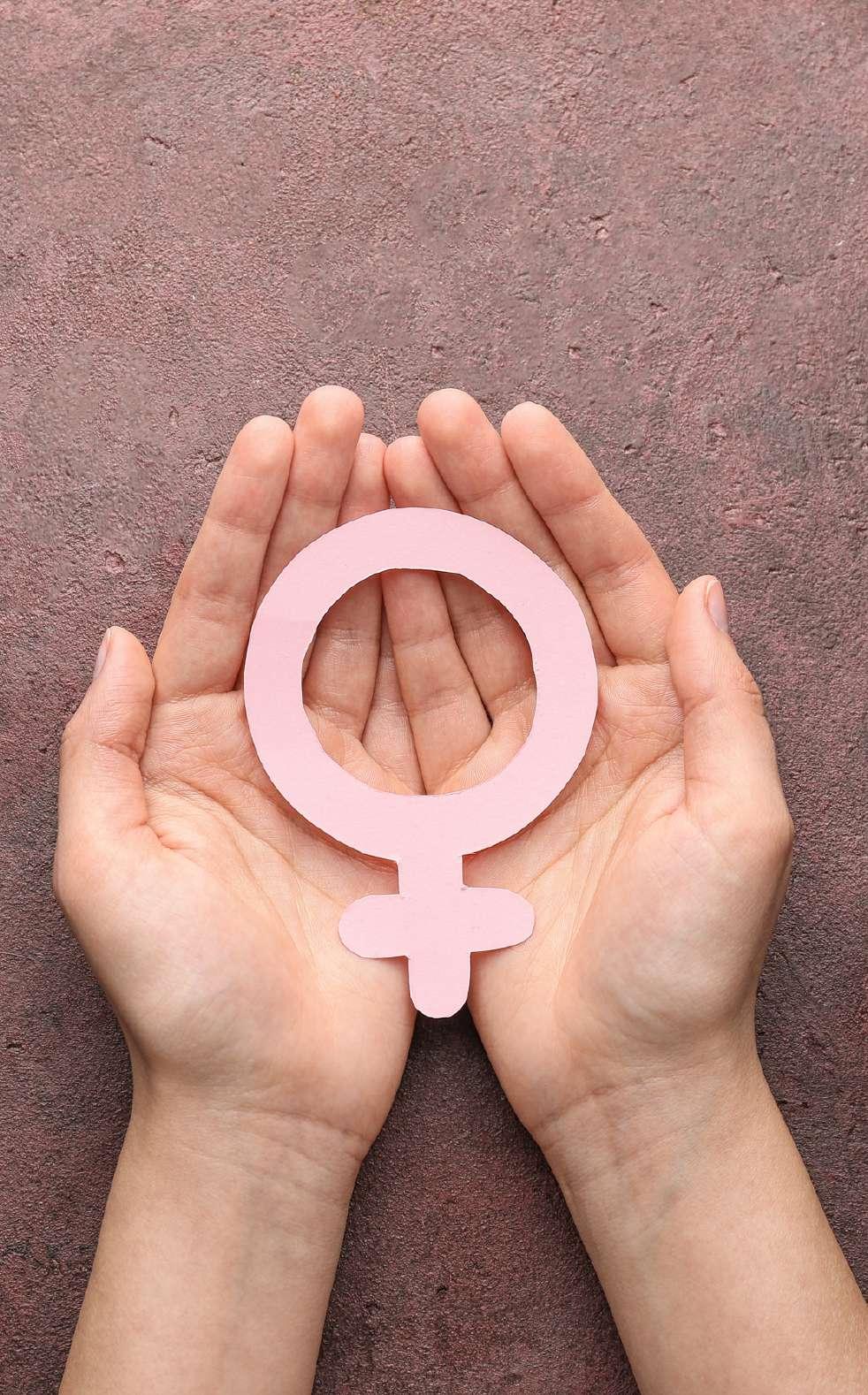
So what is feminism? It’s about gender inequity. It is never about men against women. A human rights’ issue, it is where men and women should have equal opportunity and choice.
History shows how hard it is to achieve this, where the courageous women of the suffragette movement fought and died for the right to vote.




Where with the second rise of feminism (1960s70s), ground-breaking pioneers of feminism, Betty Friedan and Gloria Steinem brought it to the fore.
They spearheaded the battle for equality of sexual rights, pay, education, protection of women and children against violence. Gloria Steinem says. ‘The story of women's struggle for equality belongs to no single feminist nor to any one organization but to the collective efforts of all who care about human rights.’

The feminist movement is re-emerging through the #MeToo movement.
‘#MeToo has no colour, religion, gender, or socioeconomic status. Above all, it’s about helping survivors heal’ says its founder Afro-American Tarana Burke. As part of this movement, high-profile sex offenders Harvey Weinstein and Bill Cosby have been convicted.
White Ribbon Australia gives alarming statistics on sexual and domestic violence, which is overwhelmingly against women and children. On average, one woman a week is murdered by her current or former partner. Almost 40% of women experience violence from their partner while separated. 92% of women who identify as LGBTQIA+ experience sexual harassment in their lifetime.
The recent horrific and heartbreaking murders of Hannah Clarke and her three young children by her violent husband expose the reality of domestic violence. Australian police deal with domestic violence every two minutes.
Disturbingly, White Ribbon statistics show that young people exposed to domestic violence, child abuse, harassment and family violence, face social and mental health damage. 1 in 5 students are sexually harassed at university. 1 in 4 young people think it’s normal for boys to pressure girls into sex.
Emma Watson, Harry Potter actress and United Nations Women Goodwill Ambassador launched at the Headquarters in New York the HeForShe campaign. It aimed galvanized a worldwide movement of men and boys to advocate for an end to global gender inequality. She encouraged men to take up this mantle for their sisters, mothers and daughters so that they are free from prejudice - but also so their sons have permission to be vulnerable and human, too. Initially Emma was afraid to declare herself a feminist, due to attacks feminists face. However she overcame her fears, to call men, as well as women to stand up for ‘feminism’.
Young, male, actors have joined Emma Watson in the HeForShe campaign. In particular, actor, producer, filmmaker, singer, Emmy Award winner Joseph Gordon-Levitt took Emma Watson’s crusade further with his campaign #Feminism and declared ‘Consider me a feminist’. He ignited debate on feminism in his HitRecord TV series, and sparked important questions in his interview on The Ellen DeGeneres Show where he advocated for gender equality and supported ‘the very long history of the women’s rights movement’ and its continuing relevance today. Other actors committed to feminism who have come on board are Mark Ruffalo, Australian Ben Mendelsohn, Jesse Eisenberg. Jake Gyllenhaal, declared, ‘Call me a feminist.’ They joined with actrors standing up for feminism, such as Maggie Gyllenhaal, Isla Fisher, Scarlett Johansson, Gwyneth Paltrow, Natalie Portman, Jessica Biel, Helen Hunt, Patricia Arquette, Helena Bonham Carter, feminist icon PINK (Alecia Beth Moore).


High-profile male and female actors now have become role models for feminism. What is the next step, especially for young adults? For feminism to have resonance, it is critical that young people engage in it in a way that is inclusive, promoting, dialogue and empathy. Providing facts and information is interesting but often it does not engage emotionally and is disregarded. When story is not didactic, not telling readers what to think, it is a successful way of connecting young people with ideas, choices and creating powerful learning experiences. Stories are central to human cognition and communication. When we empathise with characters and their journeys, we walk in their shoes. Feminism is no longer just a term. It becomes part of the values that are integral to personality. It empowers young people to make their own decisions about feminism.
It is important to reach young women as they face the challenges of search for identity, love, meaning, within cultural and societal expectations. My two year journey in writing Shadows of Olive Trees lays bare feminism, giving voice to women. ‘To my knowledge this makes Gervay the first writer to reinterpret the lived experience of young women in the seventies for an audience of young readers today – which in the light of recent media debates focussing the perceived differences between older and young feminists seems like a relevant and timely enterprise.’ (UTS) The United Nations declared the first International Women’s Day, 8th March 1975 in recognition of human rights of women and children. We are still marching today to advocate for equality of gender.


"Transforming Pain into Power: Andrea L Wehlann's Inspirational Odyssey"

What inspired you to transition from your background in psychology and social services to becoming a certified Hatha Yoga teacher and holistic healer?
Throughout high school I volunteered at our local long term care facilities and cared for the elderly. With my degree and my diploma I was working in Toronto as a frontline support worker for adults with AIDS. I began to notice the captivating magnificence of holding someone’s hand as they took their last breaths. I witnessed peace where there was once pain and suffering. I witnessed the devastating effects of mouthfuls of pills and cared for them as they experienced horrible medication side effects. The medications I witnessed were worse for them to endure than the diagnosis. My bleeding heart needed to be set free after 7 years at the same agency and my pay was capped at $13/hr.
I built a trust with the power of beyond the medicines, the calm I saw sweep over a body after the life has left. I began to study every holistic training I found in the newspapers, at the Learning Annex, joined The Theosophical Society of Toronto, practiced NLP and meditation in an upstairs bedroom of a great teacher who was following his heart as well. He later developed a successful healing course. This was the transitional inspiration for me.
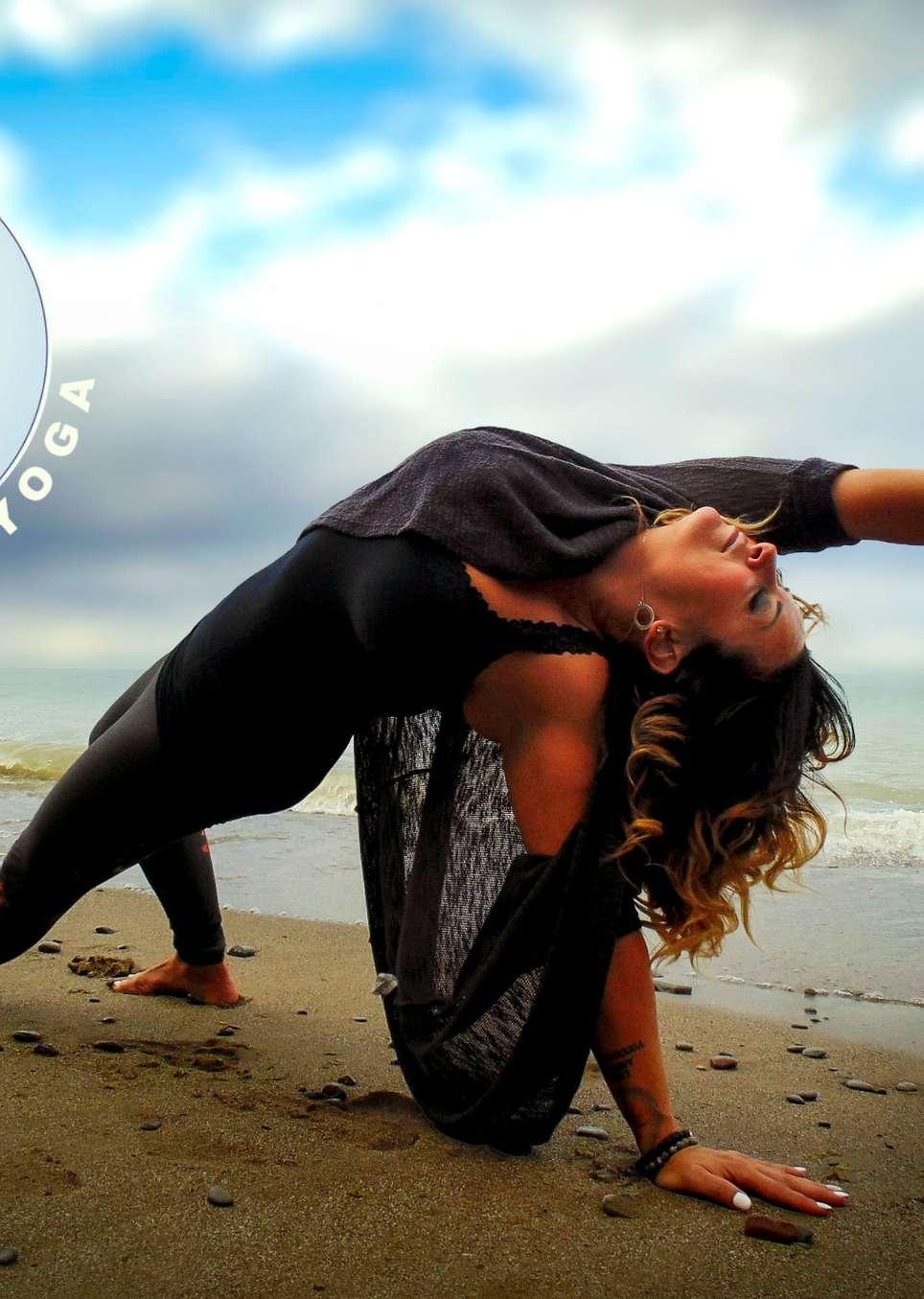
"Deeper Days: 365 Yoga-spirations for Inner Calm Amidst Chaos' ' offers daily inspirations for finding inner peace. Can you share a bit about the philosophy behind this book and how it can benefit readers navigating difficult times?
There is a yogic eight-limbed path I studied with my Zen Buddhist teachers, yoga teachers, books, courses and training. Learning these teachings I changed my course and I set the direction of my sails. The art of concentration practice revealed a connection and a kingdom I didn’t previously know about, it is within me, it is within us all. Deeper Days is one of the eight limbs of yoga. The meaning is concentration. Deeper Days offers a self-inquiry practice, which means you think about something in a new light, therefore creating new pathways of thinking and patterning of the cells and opening of your heart. Each day in the book offers one line after the daily message, as often as you can if you repeat that one mantra, sentence, vibration, as often as you can throughout the day, this will strengthen your innate capabilities within you now of focus, increase awareness and increase concentration. Once you have increased these you can build onto this and actually have capacity for meditation practice, yoga, or what your heart’s inner wisdom drives you towards. Without concentration on one thing, nothing can be sustainable for longer periods. This practice is yoga. When the pandemic shut down my yoga studio Ganga Moon Yoga, I took all of my years of training and teachings and wanted to make yoga as simple as I could for us all. This is for everyone. Your inner calm amidst chaos is a superpower. There is greatness within you. It is never too late to shine your brightest.
Your poetry collection, "No Matter How Dark The Stain: Poems and Inspiration for the Woman in Pain," touches upon profound themes of resilience and healing. What motivated you to share your experiences through poetry, and what message do you hope readers take away from your work?
Motivated by the alarming surge in domestic violence during the pandemic, and recalling the heartbreaking statistic of a woman being raped every three seconds, I couldn't bear the thought of women feeling alone in their struggles. I envisioned a world where these women could rise, share their talents, and find healing.
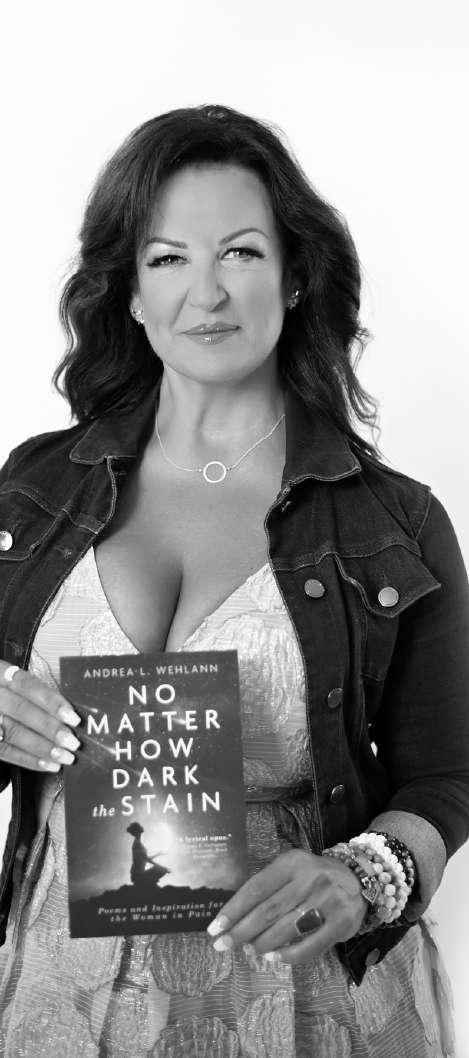
Thus, I channeled my gift of poetry into three categories: Innocence, Heartbreak, and Rise of the Goddess. Having experienced my own traumatic journey, I felt compelled to offer solace and empowerment to others facing similar challenges. Words, I believe, possess the power to illuminate even the darkest corners of pain. Through poetry, I aimed to shine a light onto the struggles that often go unspoken, providing a beacon of hope for those navigating their own paths of healing. "No Matter How Dark the Stain" was born from a desire to honor the resilience and strength inherent in every woman. It symbolizes the journey from innocence to heartbreak, and ultimately, the triumphant rise of the Goddess within. I dream of a world where these stories of triumph and resilience resonate, where compassion and talent flourish amidst adversity. With each poem, I fight for love, striving to ignite a spark of hope in the hearts of those who need it most.
As a multi-faceted practitioner of Reiki, Brazilian Jiu Jitsu, Chi Kung, Feng Shui, and meditation, how do you integrate these diverse modalities into your teachings at Ganga Moon Yoga Studio?
Great question, I have become the teachings, I feel embodied and the training and teachings are now who I am. My students seem to resonate with me for these extraordinary gifts I share with them, authentic, whole, real, I show up for them. It is most important for me to see them and reflect their light back to them. It is essential for me to honor the teachers I have had and so I tell my Ganga Moon yogis the stories of my teachers. This is how I transfer knowledge. It would be the saddest graveyard for me to die with my lessons unshared. I remind my students some days at the end of classes, “you are not here to become enlightened, you are here because you already are”. With the Reiki I can feel their energy as they come to class or even prior, I am then able to instruct a class for them based on what may heal their bodies most for that evening. I am able to channel reminders of their greatness to them, remind them they are doing good. These are important little things, and there is nothing bigger than the little things. I have cultivated an Andrea L. Wehlann that speaks only from the heart, my students tell me they feel that. How amazing and divine this is. They inspire me. It’s a beautiful energy. Feng Shui is lovely when I move things around and keep them wondering “Andrea, has that always been here?” or “Andrea, am I seeing things, did you move this”. I love it because the mind gets stuck, and the practice of yoga is no disturbances of the mind. The body needs movement, unstuckness. I am creating spaces within the bodies and minds and this space allows for our nature to be. We are love, stillness, nature, compassion, peace and interconnected.
Being recognized with awards and featured in various publications signifies the impact of your work. How do you feel about the acknowledgment you've received, and what drives you to continue your journey as a healer and author?
What drives me is a lesson that touched me deeply from one of my yoga teachers, “how can we be free if the prisons are full”. I am not an island, I am connected to everyone and every vibration on this invisible interconnected web of frequencies we call ‘life’ and I will share my heart until we all can share our hearts without fear. The acknowledgement is an outstanding thrill. It’s like a poem, it's a moment in time, captured.
It's a yoga pose, practiced, yet as Patthabi Jois taught his Ashtanga yoga students "keep going, there’s more”. I am proud of the woman I have created myself into. There has been sacrifice, hard work, devotion, and I can say that to you now honestly. I am grateful. My cup overflows. I feel love. Thank you for this moment, this is a happy moment.

Your journey through overcoming childhood abuse, rape, miscarriages, and other challenges is incredibly inspiring. How have these experiences shaped your approach to spiritual healing and your work as a yoga teacher and author?
I trust having such extraordinary experiences repeatedly was showing me a pattern and revealing to me that I have a gift to help other people. My experiences and near death experiences have given me those dark trenches of bloody hands scraping my way up some intense walls where I saw no light, and also I have a power to love and feel that is far beyond my words. Such experiences rule out what is insignificant in a big picture of reality. I have learned that love is stronger than death.
I have learned that those dark parts and the light parts within me, are both love. I chose love. I know that I am love and lovable. It is my most authentic soul that drives me to share this knowledge with others. I feel extremely grateful that people I come in contact with, I have wisdom and discernment now that i am able to see them, truly see them, and in this, I can meet them where they are at, then, I show them the love that they are. The love that I am, the love I found.
The greatest illusion is that we are separate, I want to shatter that. We are interconnected, we are destined for greatness. This is my purpose, this is what I teach, this is who I am and this is what I write about. We are all equal parts of this wholeness. I shine brighter when we all do. We have a long way to go before we love too much.
How much of your daily dressing is passive despite the active assumptions others make about you?

“Fashion should be a form of escapism, not a form of imprisonment"
The past notion that “the dress agreed upon by the modest majority keeps social equilibrium” , was hardly true then and isn’t helpful now (Jordan et al., 2021). Agreeing to allow a slowly moving group of people to set the social tone for what is desirable and acceptable way of dress in any given culture is harmful.

The harm comes from giving the power of nonverbal language directly to society, cutting out the influence of Self. The Self is the true, undamaged, born essence of a person (Schwartz & Sweezy, 2020).


A relevant example of how the Self is cut off from clothing due to the influence of the majority is high heels. Women often carry more comfortable shoes in their purses to put on after an event. High heels are uncomfortable and painful. Yet, wearing high heels can be a badge of honor. But who is this badge for? Is the Self content to be in pain? Are the feet willing participants? Or is the badge worn for society to see? Women whose foot anatomy and pain tolerance has changed after acclimating to high heels confidently tell their friends that they are more comfortable in heels than flats. Some cultures believe that a woman in flat shoes has given up on her image. Yet, no one is rushing out to purchase hiking heels because the hiking culture does not support that option. The culture has dictated heels are appropriate for business, casual and special events but no one checked in with the Self.
Often clothing requirements and regulation are mandated by law. Often, the politicized regulation of clothing serves an agenda outside of safety and health, like with the mandating of the Hajib in some areas, and the restricting of the Hajib in other areas. If the conversation between Self and clothing concluded to go against the law, consequences would need to be weighed. But in the system of influence on fashion and dressing, being in contact with the Self on what you wear and why could balance the odds that the law brings against freedom of Self and nonverbal communication.




Research show that uniforms are associated with the perception of increased competence, reliability, intelligence, helpfulness, status, and authority. Individuals have been found to be more aggressive when wearing a black sports kit or a hood and cap, while women are less aggressive when wearing a nurse’s uniform. These observations can be explained through the concept of enclothed cognition, a term proposed by Adam & Galinsky. Enclothed cognition is the phenomenon of people adopting the traits and properties they associate with the clothes they wear The more intense the surrounding ethnic culture is, the easier it is for consumers to have the desire to buy ethnic clothing. And if you are in an area where the national color is relatively diluted, it will reduce the consumer’s desire to buy.


At an early age, we are dressed by our parents to fit in with the culture of our peer group, and the agreed upon aesthetic of the laws of the school. While this choice to take away the choice of dress from younger children can be seen as an act of care, taking the autonomy of dressing away from a child could also take away a child’s time of cultivating how they do their daily ritual of dress, and how their choice fits into the system of social code dressing. Any failures or success in dressing lies with the parents and removes the child from the relationship with their clothing and the consequences of their would-be-choices. Identity issues arising rapidly around age 9 are already exacerbated by the lack of diverse role models in the media and leadership (MacDonald, 2014). And the author wonders if the guiding hand of parents in their children’s clothing choices may be more for the comfort of the parents than for the development of the child. But how is this potentially effecting a child who feels like an imposter in their clothing? And does this person walking around in nonverbal cues that are not their own help them in life, or hinder them?



Whether you are male or female, Reed found that an individual’s clothing style is influenced by aspects of self-concept such as identity, value, attitude, and mood. Sontag and Lee. stated that body image may affect clothing behavior and clothing may affect body image and self-feelings. Clothing reflects the self — the identity, the material practice we engage with in daily life. One’s wardrobe is known to be an extension of the diverse aspects of one’s beliefs and constructs social identity. clothing as utility or necessity is a strong indicator about the person’s inner world and their disconnection from Self. For example, a person recently noted that the person does not wear white. When asked why, the person said that white gets too dirty. But a white shirt or a navy shirt will have the same opportunity to be soiled through the course of the same day on the same body. However, the navy shirt will show less soil and allow the wearer to appear cleaner.

So, it’s likely that the person isn’t worried about the actual dirt, but the person’s appearance as dirty. The comment was about a white shirt showing dirt, not the need for the person to find a way to stay cleaner during the day.If the person had noted that the person hated looking dirty and appreciated the concealment of the navy color of dirt, that would be a different level of self-awareness. If the man truly prefers navy shirts over white, then the issue of how the man associates himself with being dirty is not important. But the insight into the reasons we chose what we chose to wear, and how we have the right to do so is the issue.






Allowing the impact of clothing as a non-verbal cue to go unnoticed within your authentic self is a missed opportunity to create safety in your inner world and understand your own choices, It’s possible that you know why you wear what you wear. But now, some of us may feel that we dress for others, to gain respect, or to look competent though we feel disconnected to what we are wearing, some of us still don’t know why some clothing is too special to wear and too special to throw away, some of us may never think about our connection to clothing until our spouse dies and we can’t seem to handle their clothing, and some of us have never think about the connection of ourselves, our clothing, and society or don’t know why we wear what we wear... And that’s okay!
Maybe we haven’t moved forward in the personal psychology of clothing because we haven’t reconciled our relationship with clothing in the past and now is the time to check in with our Self and see if we should.





Women are a powerful voice in jewellery. In the evolving landscape of the jewellery industry, women are not merely participants; they are trailblazers, visionaries, and change agents. As we redefine the narrative for women in this esteemed sector, we embrace the spirit of innovation, empowerment, and inclusivity.
Globally-connected and entrepreneurially-spirited, women in the jewellery industry are forging new paths, breaking traditional molds, and reshaping perceptions. With a keen focus on sustainability, social responsibility, and ethical practices, we are catalysts for positive change, driving meaningful impact and fostering a culture of conscious consumption.
It is important to recognize and celebrate the achievements of women in the jewellery industry and work towards creating more opportunities for women to pursue their passions and make significant contributions to the field. By highlighting the work of women in the industry, we can gain a more nuanced and accurate understanding of the industry's history and its potential for the future.

Our journey is rooted in a commitment to authenticity, integrity, and excellence. We reject outdated stereotypes and embrace our multifaceted identities as leaders, creators, and influencers. Through collaboration, mentorship, and advocacy, we amplify our voices, champion diversity, and inspire the next generation of women to pursue their passions fearlessly.
Jewellery serves as a powerful medium for self-expression, allowing individuals to communicate their unique personalities, beliefs, and emotions without saying a word. As we embark on this transformative journey, we celebrate our collective achievements, honour our heritage, and embrace the limitless possibilities that lie ahead. Together, we are crafting a new narrative—one that celebrates the strength, resilience, and boundless potential of women in the jewellery industry.
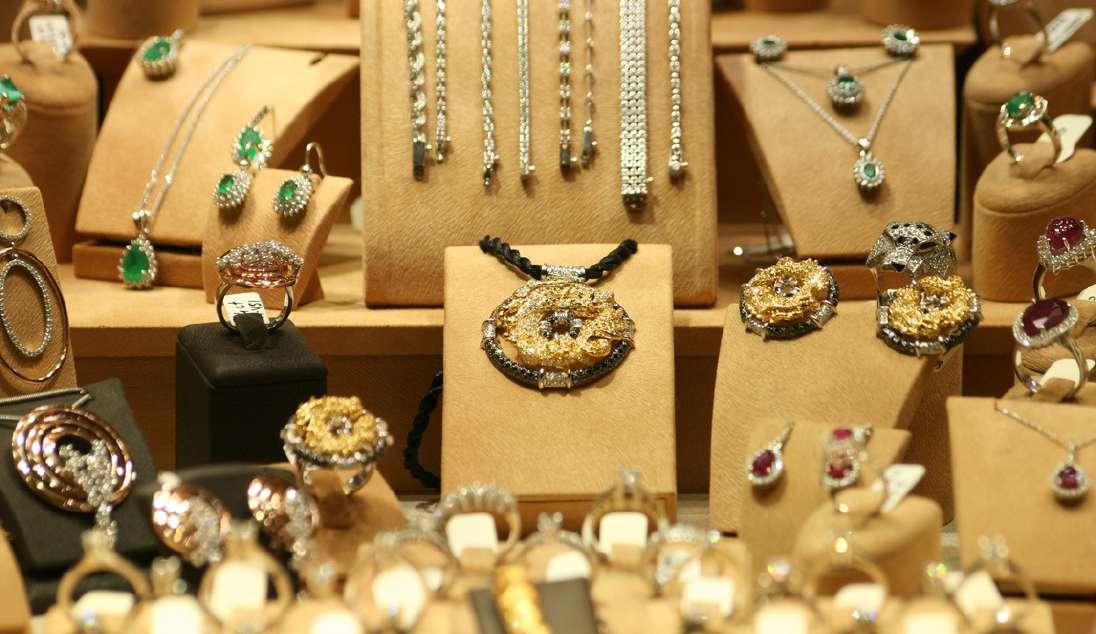
BREAKING GLASS CEILINGS. WHY WE NEED MORE FEMALE LEADERS.
INTERVIEWWITHCHARLIEPUCHALA
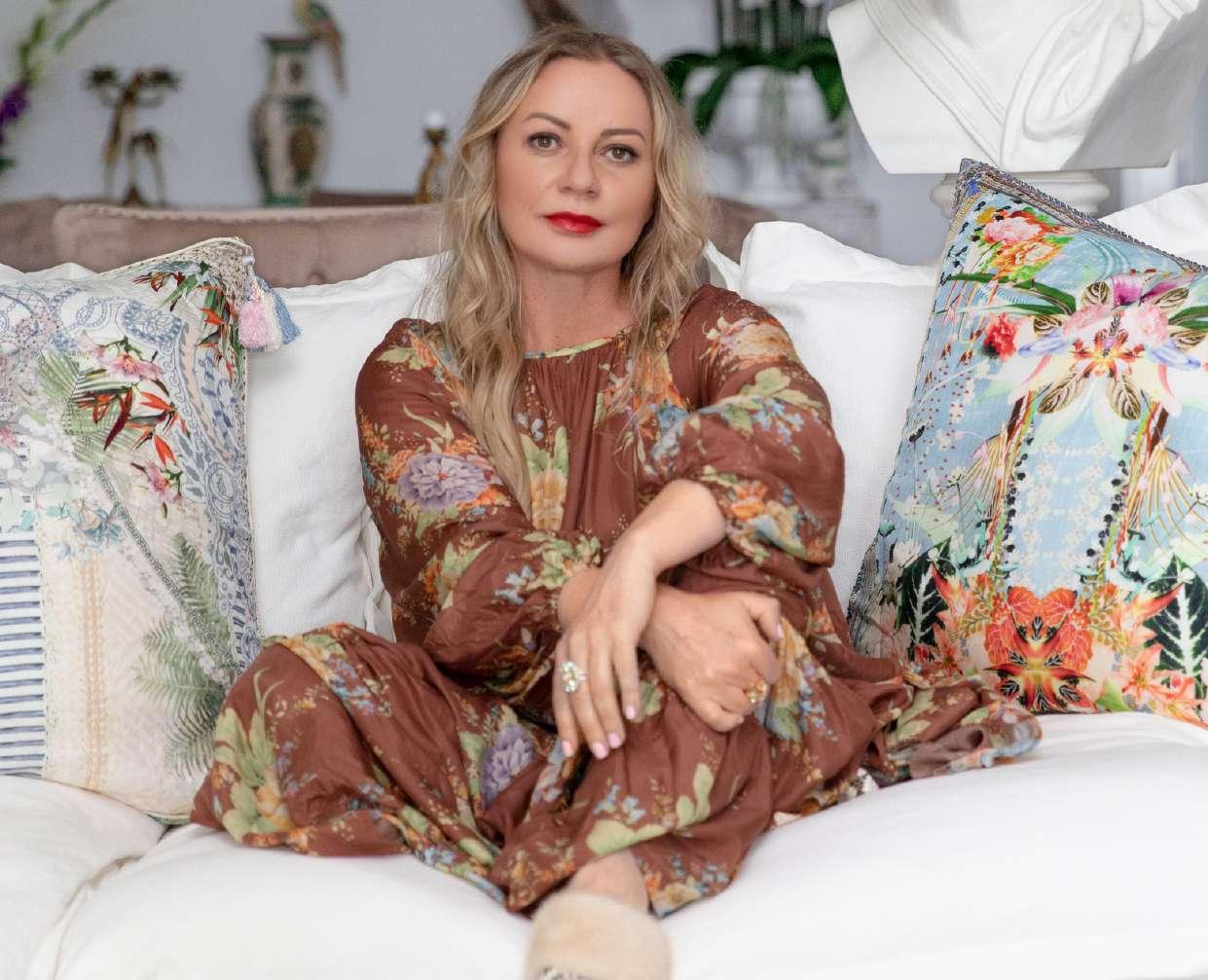

What inspired you to venture into the world of slow fashion with ZA Collective, and how do your travels influence your designs?
Absolutely the love of textiles, patterns and colour. I love to see the flow of fabric and the silhouettes that this creates, in interiors and mostly in fashion. Fundamentally the driving force behind the ZA collective fashion was certainly the creative houses in India, working with the artisans, dyers and also the production teams. Contributing to their lives in a meaningful way from the ground up.
Sustainability is a core value in both your personal and professional life. How do you integrate sustainability practices into your businesses, and what impact do you hope to make in the wider community through your advocacy efforts?
I believe that our planet, the creatures who we share it with and the resources are a gift to us and our future generations. Contributing at ground level be it with conservative construction materials, actively sourcing environmentally sound products, not polluting the waterways and holding your company accountable for all environmental aspects is key. Construction is far from perfect as is the fashion industry along with all other industries from what I can see. If we genuinely make an effort at our core to do the best we can then we can certainly make a fundamental difference.
I’m not sure if I can make a wider impact, time will tell but I can certainly make a profound impact locally with the things which I can control. If I am able to do environmentally and ethically better then I certainly strive to do just that.

As the creative force behind Charlie's Interiors, how do you balance your love for design with the practical aspects of construction, and what sets your full-build experience apart from others in the industry?
My first love has always been construction, how do buildings work, why do they make you feel a certain way simply by walking into them and how to create beautiful, usable spaces. Interiors are a secondary function for me but equally as important. I’m not sure if a balance exists to be honest, they both have their requirements and fundamental rules.
I create fully furnished homes which come architectural designed from the outside right thorough to the inside. Soft furnishing, original artwork and of course all the things you might expect for a multi million dollar home are included in my developments. You can literally open the front door of the day you purchase the property and host a dinner party.

Could you share some insights into the founding journey of Puch Constructions and Building? What challenges did you face, and what principles have guided the company ' s success over its 15-year tenure?
The list of challenges is never ending as are the solutions to overcome them. For me construction seemed like a logical choice at the time, PCB was not funded on a fancy or a whim, it was simply and honestly founded on the basis of making money, building wealth and having the ability to support my new family.
My company ethos is an extension of me, I think as a founder and working director the principles of your morals and ethics guide your team and build the company structure at its core. Honesty, integrity and an unwavering believe in being able to problem solve challenges, having the ability to risk assess situations and make the decisions necessary to direct the company forward.
Having the ability to make difficult decisions and not losing sleep over them, placing the company needs above all else including my own needs or desires. There is simply no room for emotional reactions or actions, success comes at a price, you have to learn that the company is an engine, it has a life of its own and your place in that machine requires you to put aside your own needs and desires for success.
You also have to do the work, there is no escaping that. You can dream and visualise but if you don’t actively and physically do the work that’s all you have. Dreams.

With your diverse range of roles as founder, director, designer, writer, and innovator, how do you maintain your creative energy and stay inspired across all your projects and endeavors?
Easy, travel!!! I love to jump on a plane and ramble around a new country at every opportunity. I find new places, colours, smells, people and architecture completely inspiring. I don’t do well sitting by the pool with a cocktail, I’m more of a up and go get it traveller.
When I’m not able to travel I love to fly a plane, rock climb and jog. I think those things for me change my perspective a little and enable my brain to function on a different level. Recharging, remoulding and allowing me to look at things from a different perspective.
Beneath the abundance of the Indian cuisine, a thread of resilience, creativity, and women's empowerment is revealed, knitted by the dedicated fingers of women leading in the gourmet industry. There is a world beyond the aromatic spices and tasty flavors where women have broken stereotypes, moved barriers and rose as forward-looking leaders in a sector often considered a male preserve. In this article we embark on a gourmet journey exploring the transformative impact of female innovators on the gastronomic landscape.

From the amazing kitchens where contemporary interpretations of global cuisines are produced, to the bold experiments which have resulted in international recognition; Indian women are writing a new history of gourmet distinction. They stimulate the taste buds and convince the world that Indian cuisine is indeed truly unlimited and unrestrictive in its creativity. Over the years, India's gourmet industry has undergone a notable transformation and has shifted from age-old culinary methods to fusion.
Innovations such as molecular gastronomy and farm-to-table practices have flourished. Enabled by technology, delivery services, and online platforms, the gourmet realm has flourished. Numerous talented women with their expertise and passion are at the forefront of these changes.
Women’s journey in the gourmet sector in India has not been an easy one. However, these struggles have instilled in them a certain fierceness that has propelled them to go against all odds and make their own way. From battling gender biases to traversing patriarchal structures, these pioneers have emerged stronger, their resilience serving as a beacon of hope for aspiring chefs across the nation.
Tradition is the very foundation of any food creation which has been blended with the new spirit of uniqueness. The Indian women in the gourmet scene have acquired the art of the blend, a delicate balance, whereby they incorporate old recipes with modern flair to create dishes that tickle the gustatory senses, and captivate the imagination. Whether it is coming up with a new fusion Indian dessert or depicting regional cuisines in a contemporary light, these trailblazers are altering the gourmet territory, one course at a time.
While celebrating woman achievements in the Indian gastronomic scene as well as honoring their contribution to the world of gastronomy one fact gets loud and clear – their legacy will continue to live long. Every time they achieve a new milestone and break their own boundaries, they remind a new generation of young chefs to be brave and follow their aspirations tirelessly. They are shaping the future of cuisine, keeping the torch of Indian food literature ablaze by handing down values of excellence, innovation and empowerment from one generation to another.As we celebrate women chefs for their achievements and honor their legacy, we need to acknowledge that their influence is not only restricted to the kitchen; rather, it is a force that reshaped the perception and created a society that thrives on equality. From quick-service restaurants, patisseries, and even gourmet industry, women are on the way of pioneering new paths and breaking the conventions which will contribute to developing the art of gastronomy.
Women’s journey in the gourmet sector in India has not been an easy one. However, these struggles have instilled in them a certain fierceness that has propelled them to go against all odds and make their own way. From battling gender biases to traversing patriarchal structures, these pioneers have emerged stronger, their resilience serving as a beacon of hope for aspiring chefs across the nation.
Tradition is the very foundation of any food creation which has been blended with the new spirit of uniqueness. The Indian women in the gourmet scene have acquired the art of the blend, a delicate balance, whereby they incorporate old recipes with modern flair to create dishes that tickle the gustatory senses, and captivate the imagination. Whether it is coming up with a new fusion Indian dessert or depicting regional cuisines in a contemporary light, these trailblazers are altering the gourmet territory, one course at a time.
While celebrating woman achievements in the Indian gastronomic scene as well as honoring their contribution to the world of gastronomy one fact gets loud and clear – their legacy will continue to live long. Every time they achieve a new milestone and break their own boundaries, they remind a new generation of young chefs to be brave and follow their aspirations tirelessly. They are shaping the future of cuisine, keeping the torch of Indian food literature ablaze by handing down values of excellence, innovation and empowerment from one generation to another.As we celebrate women chefs for their achievements and honor their legacy, we need to acknowledge that their influence is not only restricted to the kitchen; rather, it is a force that reshaped the perception and created a society that thrives on equality. From quick-service restaurants, patisseries, and even gourmet industry, women are on the way of pioneering new paths and breaking the conventions which will contribute to developing the art of gastronomy.

Are you emotionally independent from the things that happen around you? Who has the remote control to your life? Your boss, your parents, that person in traffic?
It's so easy to blame others for the way we feel but the reality is that only we are responsible for how we feel. It can be a hard pill to swallow but it's also a liberating one.
Taking responsibility for your feelings is an act of self love and self respect according to Shivani Verma, an admired spiritual teacher from India. Shivani talks about how we are inclined to share our wisdom with friends or family that may be suffering, but we don't take our own advice.
Shivani says, to others we say, "Don't take it personally or it's not about you," and to ourselves we say, "How can I not take it personally or of course it was about me." So we have a very different conversation with other people than the conversation we have with ourselves. We want others to feel happy and not be in pain but for ourselves we can tend to live in a victim mindset where we believe that we have the right to be in pain when someone says or does something we don't like.
I believe the only way to emotional independence is through building a beautiful relationship yourself, one of deep love and respect. When you have a deep love for yourself, the words and actions of others will not affect you and if they do, they won't affect you for long because you understand that you are responsible for how you will respond and ultimately feel.
When our self love and self respect is dependent on the words and actions of others, our life is an emotional rollercoaster. Our inner world is dependent on our outer world and it leaves us feeling depleted. There is only one person that can disrespect you and that is you. Even if the whole world does not talk nicely to you but you talk nicely to yourself, you will always be happy. But on the other hand, the whole world can be saying the nicest things to you and if you're not speaking nicely to yourself, you can never be happy.
So it's not about what people say to us, it's about what we say to ourselves after we hear what people say. You only need one person to love you, you only need one person to respect you and that person is you.
A beautiful message from Shivani. She says, "When someone throws their energy at us, we can do three things with that energy. We can absorb the energy, reflect the energy or transform the energy. In every interaction, you have to ask yourself, are you absorbing, reflecting or transforming energy? People who transform energy are radiating love to the world but those absorbing and reflecting energy are only adding pain to the pain.
I’ve had my fair share of adversity, I think most of us have in some way. It’s so easy to hold onto the past, hold onto a grudge and blame others for our suffering but this is like the saying goes, “It’s like drinking poison and expecting the other person to die.”
It became evident to me, I was causing almost all of my own suffering. Yes, horrible things happened to me, but they were not happening anymore. It was my ability to replay the moments in my head and feel the same emotions that kept me stuck in the past, which was a painful place to be.


Your brain and body do not know the difference between the actual event and you recreating the event in your mind. It’s up to each and every one of us to stop the thought/feeling loop that we can get on, the loop that is keeping us stuck. Once you change how you think, act and feel, your life changes for the better and you can start to create rather than live in default mode.
My healing has brought me to a place where I have a beautiful relationship with my partner. I run a successful lingerie brand, Vixen & Fox, and I’m now able to give back and help others overcome what they have been through.
There are so many positives to becoming emotionally independent. It’s not an easy journey but what’s the alternative, continue to replay the past and let that dictate your future? This is no way to live and that’s why I’m so passionate about people taking back control of their lives, reclaiming the power they have given away and inspire them to design and create the life they know they are capable of living
In a world where external judgments can be disheartening, women face a lot of societal pressures and expectations. It is important to recognize that comments on physical appearance, career choices, or our life choices in general, are mere reflections of societal bias. I would not deny that hearing these comments are daunting, but we can counter it through self-awareness and knowing our self-worth as a woman. Understanding your self-worth becomes a cornerstone for resilience and empowerment.


My journey has led me to appreciate the significance of self-worth and self-awareness, especially in a society that tends to judge individuals based on societal norms.
As a woman who has a somewhat unconventional career; a medical doctor specializing in plant-based medication, adds an extra layer of complexity to my journey, often met with judgments and preconceived notions. I would not say that the journey was easy, but I would do it all over again if I know that it is taking me to live the life I am currently in.
Just recently I experienced a judgment by a man who identified as a scientist. He struggled to accept the legitimacy of my profession. He was very adamant that my career choice is all recreational. It was pretty hurtful. Despite the growing acceptance of this alternative medicine, there are those who remain closed-minded. His reaction slapped me back to reality, but it was a good reminder to the importance of self-awareness.
If I hadn’t known my worth, I would have dived deep into the self blame. I would have hated myself for choosing what I found passionate about. I might have been depressed, only by hearing a judgment of a person who was somewhat a stranger, someone who doesn't even know me in person. That was one of the many experiences of judgment that I faced throughout my life, but it was a wake up call for me to remind women around me the importance of self-worth.
In the face of societal biases and judgments, women must recognize the power of self-worth and resilience. It is crucial to stand strong, confident in the knowledge that our soul, character, and uniqueness are the true essence of our identity. The journey of finding ourselves may be challenging, but it is through these challenges that women can empower themselves, grow stronger, and attract those who appreciate and value them for who they truly are.
In today's fast-paced world, it is easy for women to lose sight of their intrinsic value.Therefore, we have to pause and give ourselves a moment. Stop comparing ourselves to the outside world. Each woman is unique and we have our own journey. Learn to let go of things that do not serve us – be it relationships, jobs, or anything that hinders personal growth. By doing so, we create space for better opportunities and experiences to enter our lives. This process is not only a demonstration of self-worth but also an act of self-love.
HERE ARE A FEW TIPS TO BOOST YOUR SELF-WORTH THAT I HAVE ALWAYS SHARED WITH MY PATIENTS:
PRACTICE MINDFULNESS.
Research has shown that women have more tendency to ruminate than men. Mindfulness disrupts the pattern of rumination by telling our mind to observe thoughts without getting dragged by it. Whether through meditation, deep breathing, or simply being present in the moment, mindfulness fosters self-awareness.
Acknowledge that nobody is perfect. Embrace the fact that imperfection is a part of you that makes you unique. It's okay to make mistakes; they contribute to your growt
CELEBRATE ACHIEVEMENTS.
No matter how small it is, celebrate each one of your accomplishments. By celebrating your success, you are recognizing your efforts. This positive reinforcement contributes to a sense of selfworth.
Research suggests that having resentment can contribute to chronic stress, which, in turn, may lead to various health problems and mental health issues. Forgiveness does not mean forgetting the pain it caused. Rather, it means acknowledging the pain, and choosing to let go of anger and resentment that is resulted by it.

Once you've acknowledged and embraced your self-worth, it's truly liberating! It enables us to overcome judgements, break free from societal norms, and live authentically. The journey could be challenging, but trust me, it is through these challenges that we find the most of ourselves. It takes practice, but you will slowly get a hold of yourself. This is where we find our strength and power. So let’s celebrate ourselves as women, appreciate our authenticity, and continue on a path of endless selfdiscovery and love.
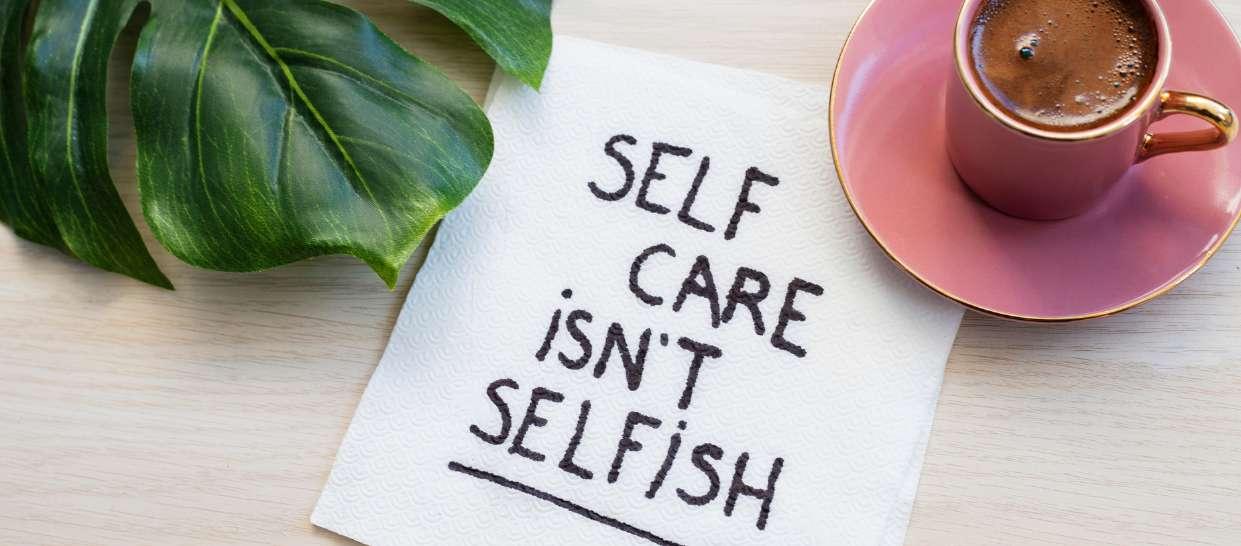

WRITTEN BY:
KIMBERLEY GRAVESIt can sometimes feel that everyone in your life is busy, busy, busy, achieving all the things. They're all over your Instagram and Facebook, showing off their new job, buying a house, and publishing their novel. Baby announcements are getting more and more elaborate, and everyone seems to be an influencer these days. Even your friend, who usually only posts motivational quotes about plants, is being promoted or running a marathon. Often, our immediate reaction is envy or resentment, not excitement or pride for our friends. It can range from smashing an audition to getting a pay rise, from a PB in the gym to getting married. It doesn't matter what it is, but I want to be happier for my friends than I am. Why? Why can't we be genuinely pleased when something great happens to someone we love?
The problem lies in the way we insert ourselves into the story. It's how we compare what others do and achieve to our success. When someone else experiences a victory, we feel it in the context of our loss- they now have something we do not. Every step up the ladder stands to show us where we stand. It can emphasise our lack of motivation or our own stagnation. Sometimes, it might make our victories feel less unique, particularly if you've just announced your pregnancy, promotion, or engagement. Maybe you just passed your driving test, but your colleague passed that super important test that allows her to progress in her career. Suddenly, someone is sharing the light of your celebration.



Women are supposed to be everything, all at once. They carry the expectations of generations while also being subjected to a rapidly changing world. And so, we hate each other. We can't do all that's expected of us, we can't do everything we want to do, and we're forced to make innumerable choices. As a result, we criticise others to reinforce a belief that the choice we've made is the best one. We might not be the least bit interested in what another woman has succeeded in, but it reminds us that that is a door closed to us. No, I don't want to own my business/be a personal trainer/curate an art gallery, but that doesn't mean there's no pang that says, "And now you never will".
And while it might seem that everyone is continually making strides in their lives and shouting it from the rooftops, it might be the opposite. Social media is a safe space to say, "Hey, I did great today". Women tend to downplay success; we say, "Oh, it was nothing", and shrug when complimented. We need a place where we can seek praise. Praise is great! It boosts our mood, improves our confidence and makes us feel valued. We praise children, and then when we become adults, the cheering stops. Your mum might still tell you you're special, but now we have to earn our accolades.
It's a long-standing joke (based on actual events) that men will lie on their resumes far more than women. By and large, women will underplay their roles, while men are more likely to outright lie about their abilities. There's a fine line between boasting and "being boastful".
We should be allowed to share the story of our triumphs, but we're so keen not to be seen as arrogant that we hold back. Maybe the answer is that all women start being a bit more vocal about their wins and start singing the praise of others.
Other women are a fantastic source of support. We are robbing us all by seeing others as a threat to our own goals rather than a cornerstone on which we can raise everyone up. We're used to fighting for a small amount of praise or that one female spot in a top job. By channelling that competitiveness as a drive to propel ourselves forward rather than a desire to pull others back, we all get to advance. No one wants to prosper merely to stop you from being happy.
When it's hard to be happy with yourself and confident in your choices, it's far easier to bring down those around you. But female friendship is one of the most powerful things in the world. Female friends are there when you have a bad day at work; they come over with ice cream and wine and tell you he wasn't worth it, and they listen to you complain about the ennui of life. By building ourselves a network of extraordinary women, we open up a world of opportunities. We don't see that those women we are jealous of have probably been grating harder than you'll ever know. They've been jealous of others. Sometimes, they have bad days. These women are fountains of knowledge that they are probably willing to share. They will be the best cheerleaders because they know how hard it is to meet your goals. We can start small and compliment her Instagram post. Send her some flowers when she tells you good news. Take her out for coffee when she kicks butt. A female friend is the ultimate secret weapon for your success. Be that friend, appreciate that friend. Tell your friend she rocks. When we share in the joy of other's success, we also succeed.


 SEJAL AGGARWAL EDITOR IN CHIEF
SEJAL AGGARWAL EDITOR IN CHIEF
